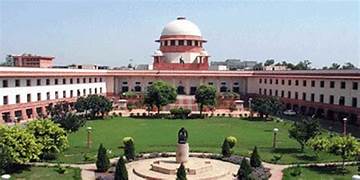The Supreme Court of India on Monday (25th November) dismissed a petition seeking the removal of the words “Socialism” and “Secularism” from the Preamble of the Indian Constitution stating that only the Parliament of India can amend the Constitution of the country,
The petition was filed by senior BJP leader Subramanian Swamy, advocate Ashwini Upadhyay and a petitioner named Balram Singh.
An apex court bench comprising Chief Justice of India (CJI) Sanjiv Khanna and Justice PV Sanjay Kumar reiterated that Parliament holds the authority to amend the Constitution, including its Preamble.
It addressed the interpretation of “Socialism” and “Secularism,” emphasizing their relevance within the Indian context.
The SC Bench also stated that the framing of policies concerning these principles is a prerogative of the government.
Supreme Court’s observation
The Supreme Court said that “Socialism” and “Secularism” are integral to the basic structure of the Constitution. The apex court also noted that while these terms can be interpreted in different ways, they should be understood in the Indian context rather than through the lens of Western interpretations. The petitions do not require a detailed hearing, he said.
“The two expressions ‘socialist’ and ‘secular’ were made in 1976 through amendments and the fact that the Constitution was adopted in 1949 does not make any difference. The retrospectivity arguments if accepted will apply to all amendments,” the CJI noted.
The two words were added to Preamble in 1976
The terms ‘Socialist’ and ‘Secular’ were inserted in the Preamble of the Constitution under the 42nd Constitutional amendment moved by the Indira Gandhi government in 1976 when the country was reeling under the draconian Emergency period.
Also read: https://tfipost.com/2024/11/the-lesser-known-history-of-sambhal/
The amendment changed the description of India in the Preamble from a “sovereign, democratic republic” to a “sovereign, socialist, secular, democratic republic.” Swamy contended that the Preamble cannot be altered, varied, or repealed.
What does ‘Socialist’ mean in the Constitution?
The term ‘Socialist’ in the Preamble reflects the commitment of the Indian state to ensure social and economic equality among its citizens. It implies that the government will strive to reduce inequalities in income, wealth, and opportunity, and will work towards providing a fair distribution of resources. It does not suggest a strict adherence to socialism as an ideology but rather indicates a mixed economy where both the public and private sectors coexist.
What is ‘Secularism’?
The term ‘Secular’ signifies that India does not have an official state religion. The country treats all religions with equal respect and does not favor or discriminate against any religion. This ensures freedom of religion for all citizens and promotes the principle of religious harmony and tolerance. The secular nature of the Indian state is meant to protect the rights of all religious communities and individuals, ensuring that religion remains a personal matter without interference from the state.
























